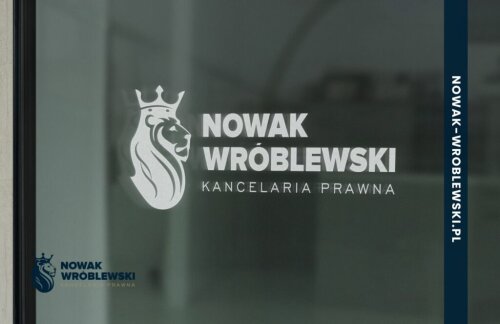Best Public-Private Partnerships (PPP) Lawyers in Poland
Share your needs with us, get contacted by law firms.
Free. Takes 2 min.
Or refine your search by selecting a city:
List of the best lawyers in Poland
About Public-Private Partnerships (PPP) Law in Poland
Public-Private Partnerships, commonly referred to as PPPs, are collaborative agreements between public sector bodies and private entities to finance, construct, and operate projects that serve the public interest. These projects can include roads, hospitals, schools, public transport, and more. In Poland, the legal framework for PPPs aims to encourage private investment in public infrastructure and services while balancing the needs and interests of the public and private sectors.
The PPP model has gained popularity in Poland since the enactment of the Act on Public-Private Partnership in 2008, providing a transparent structure for developing and implementing PPP projects. It outlines the rights and obligations of each party and the procedures for managing risks and delivering value for money for taxpayers.
Why You May Need a Lawyer
Navigating a Public-Private Partnership involves complex legal and regulatory considerations. There are common situations where the support of a skilled lawyer is essential:
- Drafting and negotiating agreements to ensure that rights and obligations are clearly defined and adequately protect your interests.
- Complying with public procurement laws and PPP regulations to avoid legal challenges or disqualification.
- Risk identification and allocation, including financial, operational, and legal risks.
- Resolving disputes that may arise between public authorities and private partners during or after the partnership.
- Conducting due diligence to evaluate the feasibility and legal standing of a PPP project.
- Assistance during bidding processes to prepare the necessary documentation and ensure compliance.
- Guidance on regulatory and tax issues to understand all legal obligations under Polish law.
Local Laws Overview
In Poland, the key piece of legislation governing Public-Private Partnerships is the Act on Public-Private Partnership of December 19, 2008. Additionally, the Public Procurement Law and Concession Law provide further rules, especially related to procedures for selection, execution, and oversight of PPP projects.
Important aspects of local PPP laws include:
- PPP Definition: Any venture where a public entity and a private partner jointly implement a project, with risks and resources shared.
- Procurement Procedures: Transparent and competitive processes are required to select the private partner, ensuring equal treatment and fair competition.
- Structure of Agreements: The act specifies essential elements of PPP contracts, such as project scope, division of tasks, payment mechanisms, and dispute resolution.
- Oversight: Public authorities must monitor the implementation and operation of the PPP project, ensuring compliance with contractual obligations.
- Concessions: Special rules under concession law apply when revenue risk is transferred fully or partially to the private partner.
- Tax and Regulatory Treatment: Specific rules on VAT, income taxes, and accounting are relevant and may differ for PPP projects.
Frequently Asked Questions
What is a Public-Private Partnership (PPP) in Poland?
A PPP in Poland is a legally regulated arrangement where a public entity and a private partner cooperate to deliver public infrastructure or services. The partnership is based on contractual agreements outlining roles, risks, and financial arrangements.
Which laws apply to PPP projects in Poland?
The main legal frameworks are the Act on Public-Private Partnership, the Public Procurement Law, and the Concession Law. Depending on the sector and contract form, additional regulations may apply.
Who can be a partner in a PPP in Poland?
Typically, public partners are government or municipal authorities, while private partners can be companies, consortia, or other legal entities with the expertise and financial capacity to deliver the project.
What types of projects can be implemented as PPPs?
Common PPP projects include roads, bridges, waste management facilities, energy plants, hospitals, schools, and more. Almost any public infrastructure or service project can potentially be structured as a PPP.
How are PPP contracts awarded?
PPP contracts are awarded through transparent public procurement procedures. These typically involve a competitive tendering process, where criteria such as technical capability, financial strength, and proposed project solutions are assessed.
How are risks allocated in PPP projects?
Risks in PPP projects are generally allocated to the party best able to manage them. For example, construction risks may be borne by the private partner, while regulatory or political risks may remain with the public sector.
What is the typical length of a PPP contract?
PPP contracts are often long-term, typically ranging from 10 to 30 years, depending on the project type and the agreed terms.
Do PPP projects qualify for state or EU funding?
Yes, many PPP projects in Poland benefit from state support or co-financing from European Union funds, provided they meet the required eligibility criteria.
What happens if there is a dispute in a PPP?
Disputes are resolved according to the procedures specified in the PPP agreement, which may involve negotiation, mediation, or arbitration. In some cases, disputes are submitted to Polish courts.
Do I need a lawyer for a PPP project in Poland?
Given the complexity of PPPs, engaging a lawyer with expertise in Polish PPP law is highly recommended to ensure compliance, protect your interests, and navigate contractual or regulatory challenges.
Additional Resources
For more information and support regarding PPPs in Poland, consider consulting the following:
- Ministry of Development Funds and Regional Policy - A key governmental body overseeing PPP policy and providing guidance.
- Polish Agency for Enterprise Development (PARP) - Offers support and informational resources on PPP projects.
- PPP Platform - A knowledge-sharing initiative providing practical information, sample documents, and best practices for PPPs.
- Local bar associations and law firms - Many have specialists in PPP law and can offer professional legal advice.
- European PPP Expertise Centre (EPEC) - Provides guidance and case studies on PPPs across Europe, including Poland.
Next Steps
If you are considering involvement in a Public-Private Partnership in Poland, whether as a public authority, private investor, or advisor, taking the following steps can help you move forward safely and effectively:
- Assess your project needs and determine if a PPP model suits your objectives.
- Review official guidance from ministries or agencies responsible for PPPs.
- Collect relevant documentation including feasibility studies, project plans, and financial details.
- Consult a lawyer with PPP expertise early in the process to understand your obligations and legal risks.
- Prepare for the procurement or partner selection process by ensuring you meet the required legal and technical standards.
- Stay informed about changes in the law and consider joining industry workshops or seminars.
Engaging experienced legal counsel is strongly advised to protect your interests and achieve a successful project outcome. A lawyer can navigate complex regulations, advise on negotiations, and support you throughout every stage of the PPP process in Poland.
Lawzana helps you find the best lawyers and law firms in Poland through a curated and pre-screened list of qualified legal professionals. Our platform offers rankings and detailed profiles of attorneys and law firms, allowing you to compare based on practice areas, including Public-Private Partnerships (PPP), experience, and client feedback.
Each profile includes a description of the firm's areas of practice, client reviews, team members and partners, year of establishment, spoken languages, office locations, contact information, social media presence, and any published articles or resources. Most firms on our platform speak English and are experienced in both local and international legal matters.
Get a quote from top-rated law firms in Poland — quickly, securely, and without unnecessary hassle.
Disclaimer:
The information provided on this page is for general informational purposes only and does not constitute legal advice. While we strive to ensure the accuracy and relevance of the content, legal information may change over time, and interpretations of the law can vary. You should always consult with a qualified legal professional for advice specific to your situation.
We disclaim all liability for actions taken or not taken based on the content of this page. If you believe any information is incorrect or outdated, please contact us, and we will review and update it where appropriate.
Browse public-private partnerships (ppp) law firms by city in Poland
Refine your search by selecting a city.
















